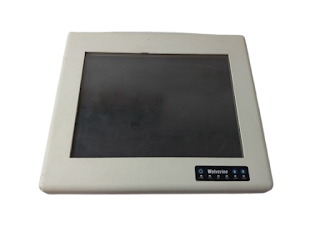Industrial automation has transformed manufacturing, logistics, and other sectors by optimizing processes and improving efficiency. At the heart of this transformation are reliable computers, which act as the brain behind automation systems. In this blog, we’ll explore the importance of reliable computers in industrial automation, their key features, applications, and how to choose the right system for your needs.
Why Are Computers Crucial in Industrial Automation?
Industrial automation involves controlling machinery, processes, and operations with minimal human intervention. Computers are essential for:
- Data Processing: Collecting and analyzing data from sensors and devices.
- Control Systems: Managing operations through programmable logic controllers (PLCs) or industrial PCs.
- Monitoring: Tracking performance in real time to detect anomalies.
- Communication: Facilitating seamless interaction between machines and networks.
Reliable computers ensure these tasks are performed without interruptions, even in challenging environments.
Key Features of Reliable Computers for Industrial Automation
Not all computers are built for industrial applications. Here’s what makes a computer reliable for automation needs:
1. Durability and Ruggedness
Industrial environments can be harsh, with exposure to dust, moisture, vibrations, and temperature extremes. Reliable computers are built with rugged enclosures to withstand these conditions.
2. Real-Time Processing
Automation requires instant data processing to maintain efficiency and accuracy. Reliable computers are equipped with real-time operating systems (RTOS) to handle time-sensitive tasks.
3. High Performance
Industrial computers need powerful processors, ample memory, and high-speed storage to manage complex automation processes.
4. Extended Connectivity Options
These computers support multiple connectivity options like Ethernet, Wi-Fi, serial ports, and industrial communication protocols (e.g., Modbus, PROFIBUS) to integrate seamlessly with automation networks.
5. Energy Efficiency
Reliable systems are designed to operate efficiently with minimal power consumption, reducing operational costs.
6. Customizability
Industrial computers are often modular, allowing customization based on specific automation requirements.
7. Longevity and Support
Unlike consumer-grade computers, industrial systems are built for long-term use and come with extended support and upgrade options.
Types of Computers Used in Industrial Automation
Several types of computers are used for industrial automation, depending on the complexity and requirements of the system:
1. Industrial PCs (IPCs)
These are high-performance computers designed for industrial environments. They can be panel-mounted, rack-mounted, or embedded within machines.
2. Programmable Logic Controllers (PLCs)
PLCs are specialized computers for controlling processes and machinery. They are widely used in manufacturing and assembly lines.
3. Embedded Computers
Compact and efficient, embedded computers are integrated into devices or systems to perform specific tasks like data logging or control.
4. Fanless Computers
Fanless designs reduce maintenance needs and improve reliability in dusty or vibration-prone environments.
Applications of Reliable Computers in Industrial Automation
1. Manufacturing and Assembly Lines
Reliable computers control robotic arms, conveyor belts, and other automated machinery, ensuring precision and consistency.
2. Energy and Utilities
In power plants and water treatment facilities, computers monitor and control complex systems for efficiency and safety.
3. Oil and Gas Industry
Computers handle drilling operations, pipeline monitoring, and safety systems in this demanding sector.
4. Warehouse and Logistics Automation
Automated storage and retrieval systems (AS/RS) and robotic sorting rely on computers for seamless operations.
5. Agriculture
From smart irrigation systems to automated harvesting machines, reliable computers optimize agricultural processes.
6. Transportation
Industrial computers manage traffic systems, railway operations, and even autonomous vehicles.
How to Choose the Right Computer for Industrial Automation
Selecting the right computer is critical to ensuring the success of your automation projects. Here’s a step-by-step guide:
1. Assess Environmental Conditions
Consider factors like temperature, humidity, and exposure to dust or vibrations. Choose a rugged computer if the conditions are extreme.
2. Define Performance Requirements
Evaluate the processing power, memory, and storage needed for your applications. High-performance systems are essential for complex tasks.
3. Check Connectivity Needs
Ensure the computer supports the required communication protocols and has enough ports for all devices and networks.
4. Consider Scalability
If your automation needs are likely to grow, choose a computer that can be easily upgraded or expanded.
5. Prioritize Energy Efficiency
Energy-efficient systems save costs and reduce your carbon footprint. Look for certifications like ENERGY STAR.
6. Verify Compatibility
The computer should integrate seamlessly with existing equipment and software.
7. Review Vendor Support
Choose a trusted vendor offering warranties, technical support, and spare parts for long-term reliability.
Top Brands for Reliable Industrial Computers
Several brands specialize in industrial computers known for their durability and performance:
Advantech: Offers a range of industrial PCs and embedded systems.
Siemens: Known for its rugged PLCs and automation solutions.
Dell EMC: Provides reliable industrial-grade computers.
Beckhoff: Offers customizable industrial PCs.
Schneider Electric: Delivers solutions for energy-efficient automation.
Future Trends in Industrial Automation Computers
1. Edge Computing
Industrial computers are increasingly being used for edge computing, enabling real-time data processing closer to the source.
2. AI Integration
Artificial intelligence enhances decision-making and predictive maintenance in automation.
3. IoT Connectivity
With the rise of the Industrial Internet of Things (IIoT), reliable computers are becoming smarter and more connected.
4. 5G Technology
Faster and more reliable communication with 5G is revolutionizing industrial automation.
Conclusion
Reliable computers are the backbone of industrial automation, ensuring efficiency, accuracy, and uninterrupted operations. By choosing the right system tailored to your specific needs, you can optimize processes and stay ahead in the competitive industrial landscape. Whether you’re upgrading an existing setup or building a new system, investing in durable and high-performance industrial computers is a step toward smarter automation and enhanced productivity.

No comments:
Post a Comment